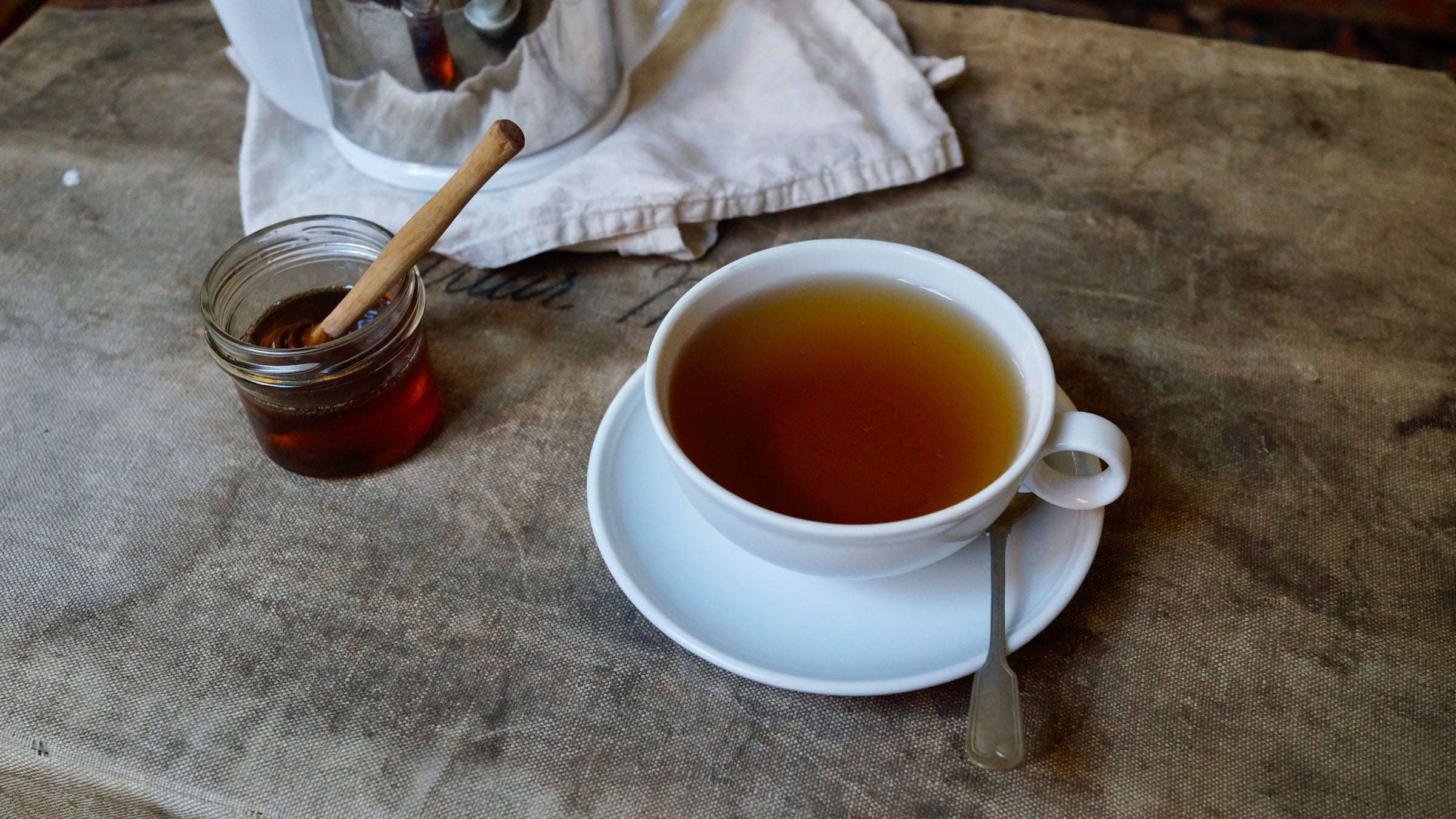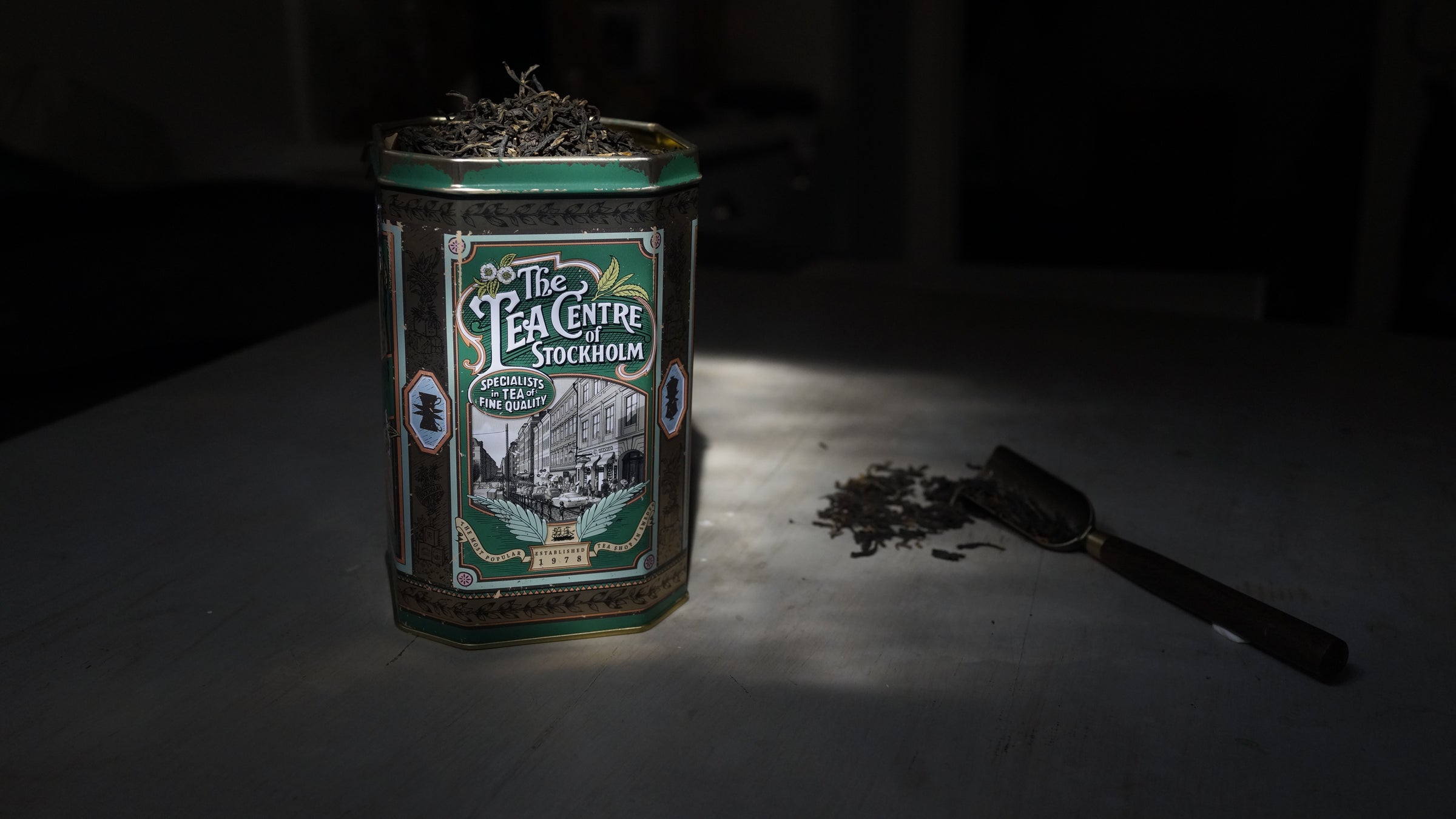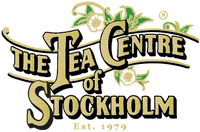BLACK TEA FOR EVERY TASTE
Black tea was undoubtedly born in China, probably at the end of the 16th century. People usually talk about the areas around the Wuyi Mountains in Fujian Province in the southeastern parts of the country. Exactly how it was invented is not known. According to legend, as is so often the case, it was a mistake. Someone forgot to heat the tea leaves and they then began to oxidize. The development was probably initially linked to oolong tea. What has been of great importance for its spread both in the past and in recent years, however, is its good export properties. Black tea is much more durable than green tea and was therefore better suited to long-distance transport. Black tea has never been particularly popular in China, or Japan for that matter. At the beginning of the 17th century, the first small quantities of black tea were shipped to Europe by Dutch traders. Black tea was originally a Western attraction that spread quickly in the Western world, mainly through the East India Company.

How to brew black tea ?
Den västerländska stilen
Den västerländska bryggningsstilen passar för smaksatta teer eller teer från Sri Lanka, Indien och Darjeeling. Tanken bakom denna teknik är att använda färre blad och mycket mer vatten, medan bryggtiden blir längre för att extrahera så mycket av smaken som möjligt på en och samma gång.
•Väg upp 3-4g teblad per 2 dl vatten. •Låt brygga 2-3 minuter. • Drick och njut!KInesiska gong fu-stilen
För mer exklusiva rena svarta teer föreslår vi den traditionella kinesiska Gong Fu-stilen till att brygga ditt te. Tanken bakom denna teknik är att använda större proportioner av teblad till vatten och mycket kortare bryggningstider. Genom att använda mer teblad och ha mycket kort bryggning, lyckas man bara extrahera delar av hela smakspektrat. Teet kan då alltså avnjutas i så kallade "sektioner", vilket ger en mycket mer nyanserad upplevelse. Eftersom smaken utvecklas gradvis och det är mycket mer blad, bidrar detta till en betydligt mer intensiv smak än vid bryggning i västerländsk stil.
• Väg upp 5-6g teblad per 2 dl vatten. • Låt brygga 30-45 sekunder. • Tebladen går att brygga flera gånger. Öka med 15 sekunder per bryggning och upptäck nya smaker som utvecklas vid varje bryggning. • Drick och njut!
The history of the black tea
It was largely the English who were the original big fans of black tea. They first imported large quantities of black tea from China until they started their own tea production in the colonies of India and Sri Lanka (then Ceylon) in the mid- to late 19th century. Before that, China was actually the only country in the world that produced black tea.
In addition to the English discovering and cultivating the Indian type of tea plant, Camellia sinensis assamica, they also managed to obtain (or perhaps rather steal) Chinese tea plants and start the first production of tea outside of China and Japan. The British botanist and adventurer Robert Fortune managed to get into the then fairly closed Chinese hinterland and under what seems to have been very adventurous conditions, he managed to acquire tea plants which he, with the help of the English state, planted in India. The experiments with the plants and the production were often very demanding, but after many failures, a professional production was developed, and when the business was industrialized around the 1880s, the market also grew globally.
The English developed the production and trade of black teas. In 1886, England imported a whopping 77,000 tons of tea from China, but after their production in India and Sri Lanka got going in earnest, imports from China dropped dramatically and almost ceased later in the 20th century. Due to the shipping advantages and Westerners getting used to the taste, black tea was the way to go, and that is actually the reason why we still mainly drink black tea.
Even in Russia and its neighboring countries, including Mongolia, black tea is important, and the same applies not least to the former British colonies of India and Sri Lanka, where black tea is basically the only thing people drink. In China, hardly any black tea is drunk at all despite its significant production; it is exported. Black tea is also produced in Russia, Turkey and Iran (mainly for domestic consumption), and during the 20th century, African countries, led by Kenya, emerged as major producers of black tea. So far, there are no high-quality varieties, but it is probably only a matter of time.








































